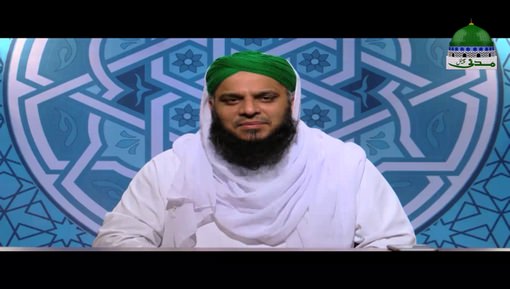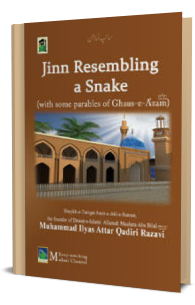
Salah holds a prominent status amongst the basic pillars of Islam. It is a means of pleasing Allah Almighty and His Beloved Rasool صَلَّى اللّٰهُ عَلَيْهِ وَاٰلِهٖ وَسَلَّم, and achieving success in the Hereafter, and it serves as a protection against immodesty and other evils. In the light of Islamic teachings, raising children accordingly and making them habitual of offering Salah are the important responsibilities of parents. Taking this importance into account, children should be made habitual of offering Salah at their young age, so that, when they grow up, Salah becomes a permanent part of their life. Remember, just asking children to offer Salah is not sufficient; rather, before children, you should yourself be punctual in offering Salah so that children can follow you and get inclined towards Salah. If female family members offer Salah in front of the children, اِنْ شَــآءَالـلّٰـه, this will be practical persuasion for them. In order to make children Salah-offering individuals, please keep in mind the following points:
Teach your children the method of Wudu. Make them memorise the Tasbih[1] of Salah, small Surahs of the Holy Quran, and (gradually) Du’a-e-Qunoot, etc. A small booklet by Ameer-e-Ahl-e-Sunnat دَامَـتْ بَـرَكَـاتُـهُـمُ الْـعَـالِـيَـهْ, namely ‘Faizan-e-Namaz’ should be bought and given to children, so that, children keep learning something on a daily basis from it and keep memorising it also (e.g. Iman-e-Mufassal, Iman-e-Mujmal, 6 Kalimahs [Statements of faith], Du’a of Azan, Method of Salah, Du’a-e-Qunoot, etc.). Do not let children remain awake till late-night; sleep early yourself and make children sleep early too so that awaking for Fajr Salah becomes easy. Arrange lukewarm water in winter for children so that they can easily do Wudu, because, in case of non-availability of warm water, the difficulties of (doing Wudu with) cold water can become a hurdle for children in the way of offering Salah; moreover, they can also fall ill. A father should affectionately and gently make his sensible child aware of the etiquette of Masjid. For example, do not make noise in a Masjid, do not run here and there, do not cross in front of Salah-offering people, etc. Then he should accompany his child to Masjid and make him stand in the last row of Jama’at [congregational Salah] along with other children. Occasionally, give gifts to the children for offering Salah but do not give gifts so much that instead of getting habitual of offering Salah, they become greedy for gifts. اِنْ شَــآءَالـلّٰـه, by this strategy, children will develop spiritual relationship with Masjid.
3 blessed sayings of Holy Prophet’s Companions رَضِیَ اللّٰهُ عَنْهُم regarding ‘making children offer Salah’
٭ Sayyiduna Ibn-e-Abbas رَضِیَ اللّٰهُ عَنْهُمَا has said: اَيْقِظُوا الصَّبِیَّ يُصَلِّی، وَلَوْ بِسَجدَةٍ i.e. awake a child for Salah even if he performs only one Sajdah [prostration]. (Musannaf Abdur Razzaq, vol. 4, pp. 120, Raqm 7328)
٭ Sayyiduna Ibn-e-Masood رَضِىَ اللّٰهُ عَـنْهُ has said: حَافِظُوا عَلٰی اَبْنَائِکُمْ فِی الصَّلَاۃِ i.e. pay attention to your children with regard to Salah. (Musannaf Abdur Razzaq, vol. 4, pp. 120, Raqm 7329)
٭ Sayyiduna Ibn-e-Umar رَضِیَ اللّٰهُ عَنْهُمَا has said: يُعَلَّمُ الصَّبیُّ الصَّلَاةَ اِذَا عَرَفَ يَمِينَهُ مِنْ شِمَالِهِ i.e. when a child can differentiate between right and left, he should be taught Salah. (Musannaf Ibn-e-Abi Shaybah, vol. 3, pp. 202, Raqm 3504)
May Allah Almighty grant us and our children the privilege to keep on offering Salah till death.
اٰمِيۡن بِجَاهِ النَّبِيِّ الۡاَمِيۡن صَلَّى اللّٰهُ عَلَيۡهِ وَاٰلِهٖ وَسَلَّم
Note: To learn Shar’i rulings regarding Salah, please study the book ‘Laws of Salah’ published by Maktaba-tul-Madinah.
[1] Words and phrases that praise and glorify Allah Almighty



















Comments